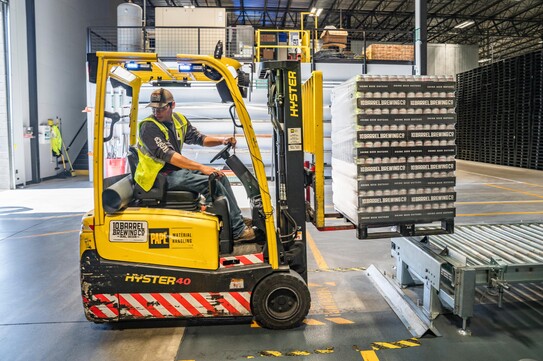One of the most complex components to effectively scaling up a business is the management of an efficient supply chain. As a product-based business grows, so too does the throughput of product through an ever thinly stretched supply-chain. All of the moving pieces in your supply chain must continue to operate in perfect alignment to avoid bottlenecking in process, and unfortunately in the costs associated with deploying a new fulfilment/dispatch location can be quite high. Thankfully the option of utilising a third party logistics partner (3PL) exists.
3PLs are uniquely positioned in the fulfilment space in that they are equipped with the knowledge and resources for businesses looking to expand their reach (whether within their existing territories, or into new ones). One of the advantages of using a 3PL is the sharing and distribution of costs among partners. Simply put, instead of your business paying for an entire facility, your business is able to use the space in the facility that it requires. This way your business is only paying for what it uses. This aspect is particularly useful if your business has regularly fluctuating inventory levels (selling seasonal stock being the example). Other costs associated with warehousing such as labour are proportionately distributed among the 3PL’s clients. If your business cannot keep a warehouse full of product year round, this makes partnering up with a 3PL a very cost effective option.

Another reason to partner with a 3PL is the ability to leverage their international reach. As opposed to investing in a warehouse in a foreign territory and shouldering the burden of operating a warehouse in a country with different regulations and currency, you could partner with a 3PL that has locations globally and leverage their local know-how in the territory you want to expand in. To increase service levels and reduce costs, it is essential to have your product based close to where your customers are. Engaging with a 3PL is typically done so on a contractual basis, meaning visibility at a transactional level. This holds 3PLs to a much higher degree of accountability with tracking of key performance indicators.
Naturally, switching to a 3PL blazes a path for the automation of the fulfilment and dispatch functions of your business. This extensive automation frees up staff to perform higher value tasks. In order to achieve this, it is key to have the right technology and business processes in place to facilitate this. ALTSHIFT has consulted upon and executed numerous extensive cloud ERP implementations, which have included platform integrations to 3PL partners. The scope of these integrations include automatic fulfilment of e-Commerce orders, fulfilment of wholesale orders and more. Have a question about your systems and scope for 3PL integration? Have a chat with the experts.
